Poll reveals European mindset among Swiss
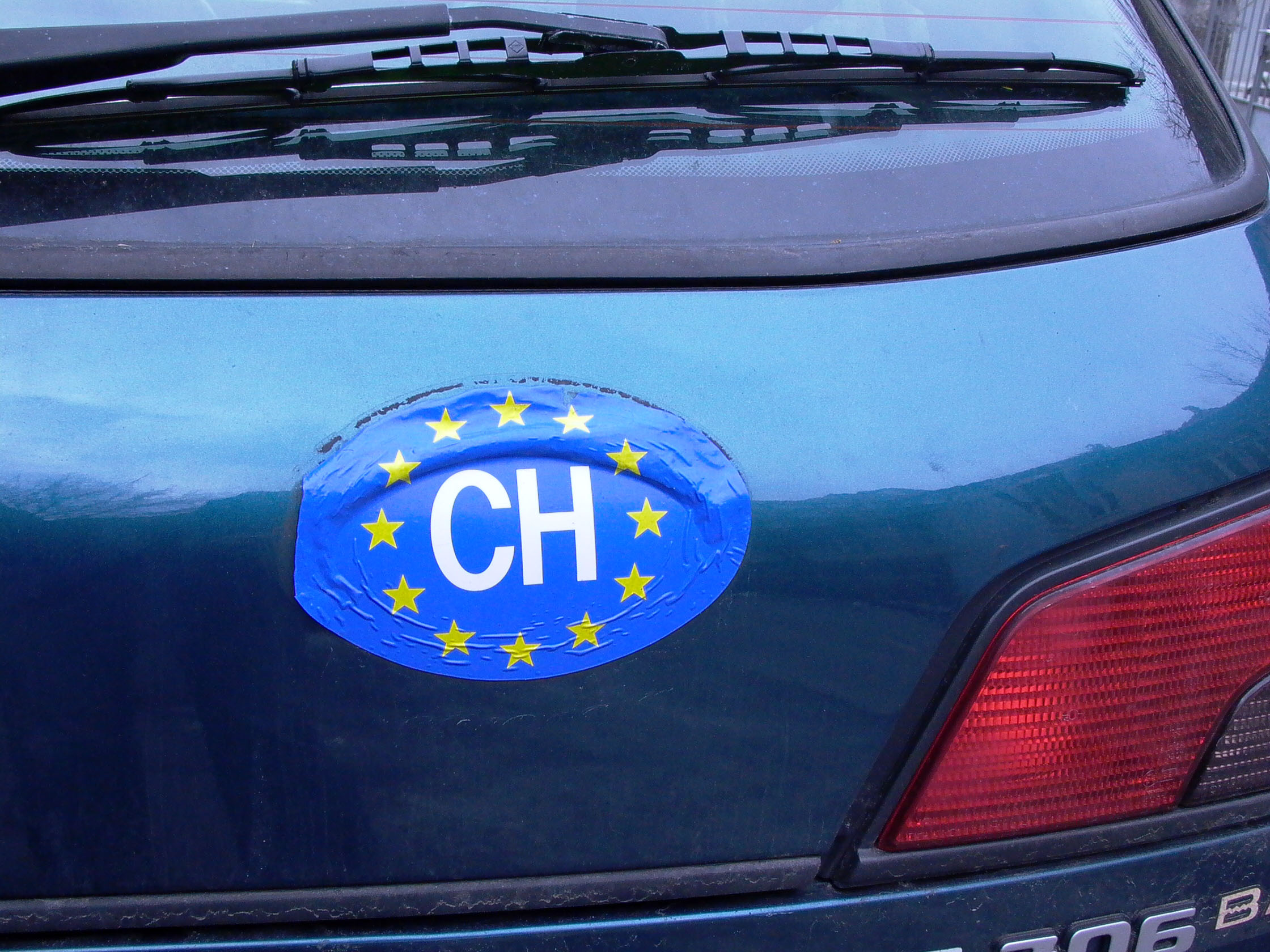
Despite not being European Union citizens, the Swiss maintain a strong European outlook and interest in the Old Continent, a wide-ranging survey suggests.
Switzerland comes out top in the European Mindset study by the Spanish bank BBVA as the nation with the highest percentage of citizens for whom European and national identities are of equal importance.
The Swiss are also among the biggest consumers of European news and have some of the most extensive family and social ties with Europe, according to the survey, which has just been published in full.
These are a few of the conclusions from the extensive research into European identity, views and values carried out among 21,000 people in 12 EU countries as well as Switzerland and Turkey.
As expected, the poll found that local and national identities were stronger than any European identity in all countries surveyed. In Switzerland 36.3 per cent claimed to be just Swiss – below the survey average – and 31.8 per cent felt they were more Swiss than European.
But 28.6 per cent said they considered themselves equally Swiss and European, ahead of the Belgians (28 per cent) and Spanish (26.6 per cent). By contrast, only five per cent of all British respondents and 4.4 per cent of Turkish put their European and national identities on an equal footing.
Although the majority of respondents – except those in Britain – were positive about EU membership (58 per cent in favour), most feel uninvolved and EU institutions are viewed as distant.
Yet there is broad consensus among those surveyed about a set of common European political-economic values, like preference for a market economy, support for a welfare state system and for the state to take an active role in the economy.
The Swiss again came out top believing their country shares universal values with the rest of Europe in all categories: economic values (87.3 per cent), political values (77 per cent), ethical principles (82.3 per cent) and religious values (78.4 per cent). This was ahead of Germany and Denmark, while Turkey, Bulgaria, Greece and Britain stood at the other end of the scale.
News and networks
Citizens’ interest in Europe is also reflected in their consumption of news.
The Swiss – 65 per cent of whom said they read a daily newspaper – expressed the keenest interest in European and other foreign news (7.4 on a scale from 0 to 10, where 0 means no interest and 10 is very interested), ahead of the Portuguese, Greeks, Bulgarians and Danish. The EU average is 6.2.
Around 86 per cent of Swiss respondents claimed to have watched a television news channel or read a newspaper or magazine from another European country over the past month, compared with the 20 per cent EU average.
The Swiss, alongside the Danes and Swedes, also travel the most widely throughout Europe. Around 87 per cent claimed to have travelled to other European countries at least once for leisure, work or study purposes over the past five years, twice the figure for Italy, Spain and Portugal.
Overall, the Portuguese and Swiss have the highest percentage of family members living in other European countries (45 per cent), and they communicate with them and visit them more often than other nations, the survey indicated.
The Swiss also have a higher share of friends living in other European countries than other nations surveyed – 57 per cent, while the EU average was 29.1 per cent.
Pascal Sciarini, professor of political science at Geneva University, said he was not that surprised by the results, many of which could be explained by the fact that Switzerland was a wealthy, open nation in the centre of the continent, and was historically home to many European immigrants.
“But it’s interesting as I’m not aware of other polls of this kind that compare the Swiss with their European partners,” he told swissinfo.ch.
Public enthusiasm
Switzerland is not a member of the EU but it has concluded 20 major bilateral agreements with the 27-nation bloc.
Despite the strong European outlook suggested by this survey, public enthusiasm for joining the EU appears to be low.
In a separate poll of 3,790 Swiss people by the Isopublic market institute firm in July 2010, 63 per cent rejected the idea of joining the EU, while 25 per cent were in favour. Around 12 per cent were undecided.
“You can feel European without feeling close to the EU,” said Sciarini, explaining the apparent contradiction.
“The Swiss people and its elite just don’t want to join the EU,” added René Schwok, a political scientist at Geneva University and author of the book, “Switzerland – European Union: An impossible membership?”
“Switzerland is relatively prosperous and as long as there is no economic crisis it doesn’t see why it should change things,” he added.
More and more Swiss believe there is an incompatibility between Switzerland’s federal system with its direct democracy and neutral stance, and the EU, and this scepticism has been fuelled by the rightwing Swiss People’s Party and the government, said Sciarini.
“I doubt the bilateral path is possible for that much longer, but the Swiss are not ripe for joining the EU at least in the next ten years.”
Iván Turmo and Simon Bradley, swissinfo.ch
Switzerland has to consider closer ties with the EU to maintain its sovereignty and position as a wealthy nation, experts say.
The think tank Avenir Suisse says continuing relations with the EU on the basis of bilateral treaties is not promising for the future.
Three possible scenarios are put forward: a new attempt at joining the European Economic Area (EEA) treaty; full membership of the EU, albeit without taking on the euro currency; or a global alliance of small and medium-sized states in Europe, Asia and Latin America.
Voters in 1992 narrowly rejected the European Economic Area treaty at the polls following a campaign by the rightwing Swiss People’s Party.
An application for EU membership has effectively been shelved, but not withdrawn.
Switzerland is not a member of the EU but it has concluded 20 major bilateral agreements with the 27-nation bloc.
There are also about 100 secondary bilateral accords between Bern and Brussels.
Negotiations are underway for a bilateral treaty aimed at regulating access to cross-border electricity and a free trade accord on agriculture.
But Brussels no longer wants to sign tailor-made agreements with Switzerland, which is being told to align itself to EU rules and regulations.
A working group of experts will be set up to look at “possible options” and is expected to report back by the end of the year. One of the ideas being studied will be a global cooperation accord.

In compliance with the JTI standards
More: SWI swissinfo.ch certified by the Journalism Trust Initiative


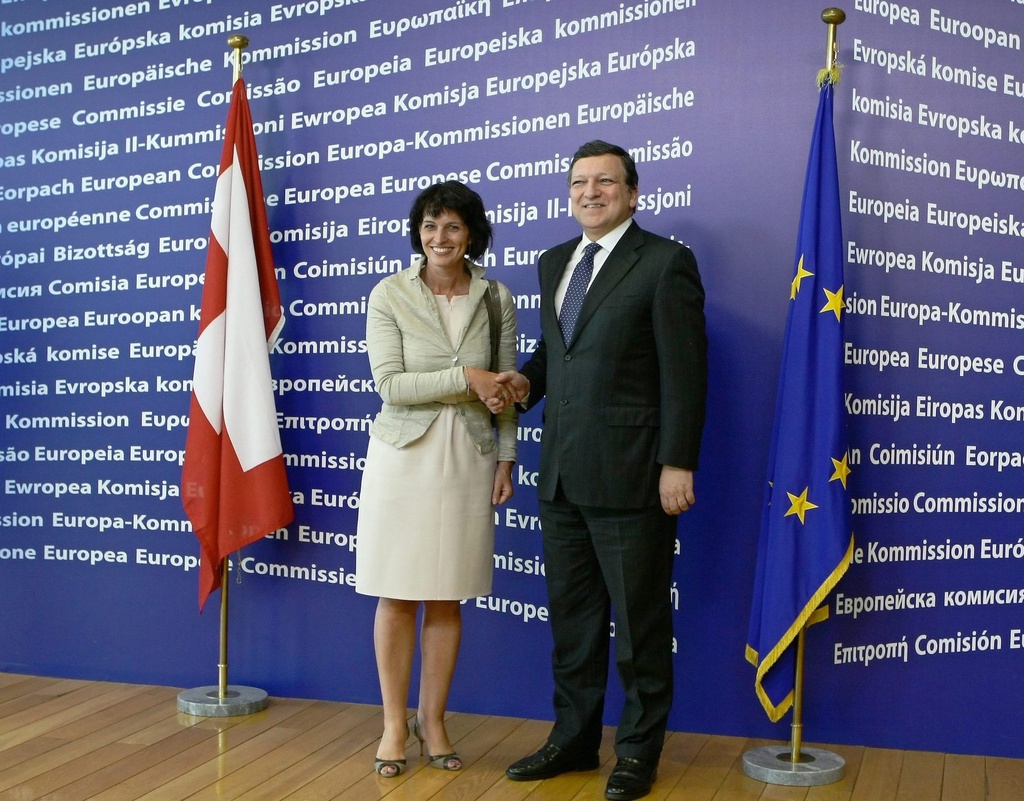
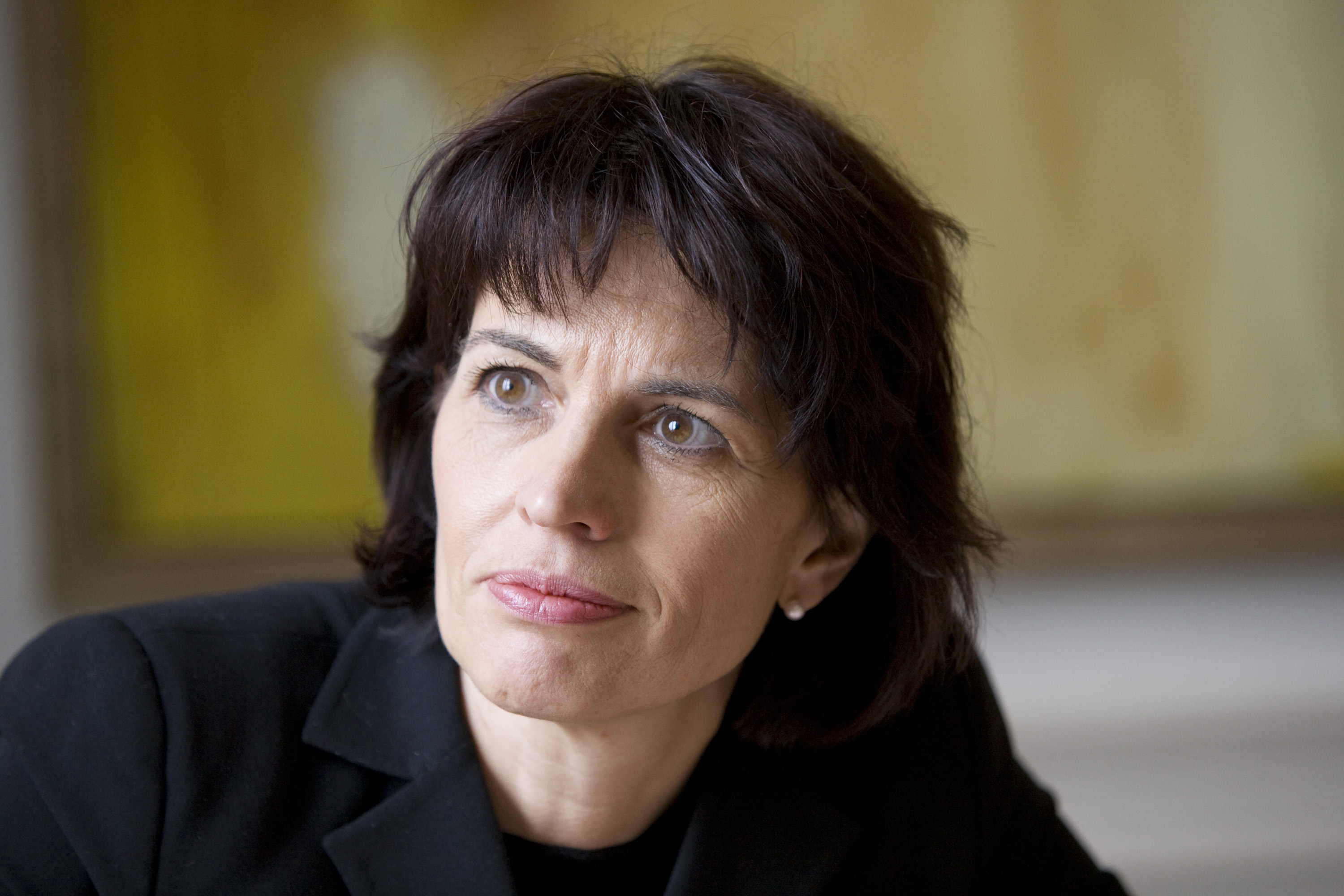
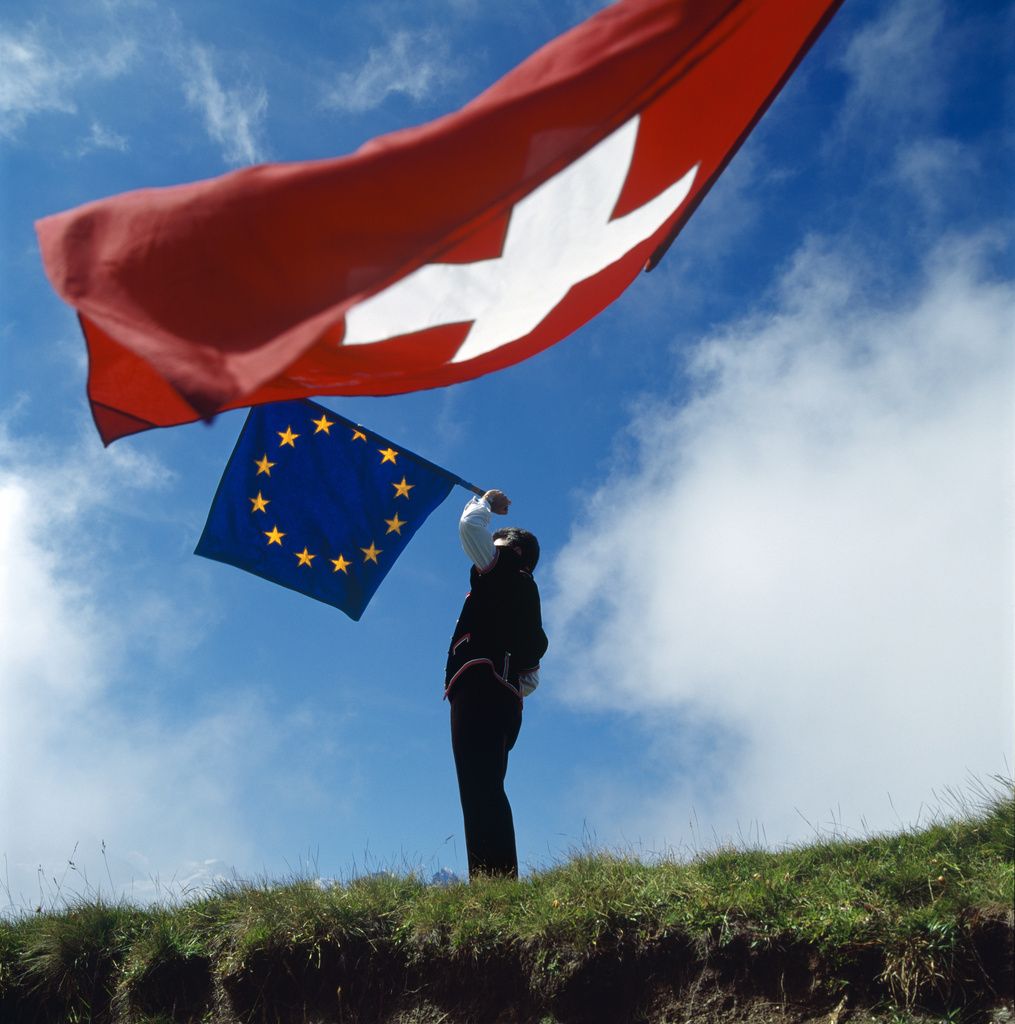
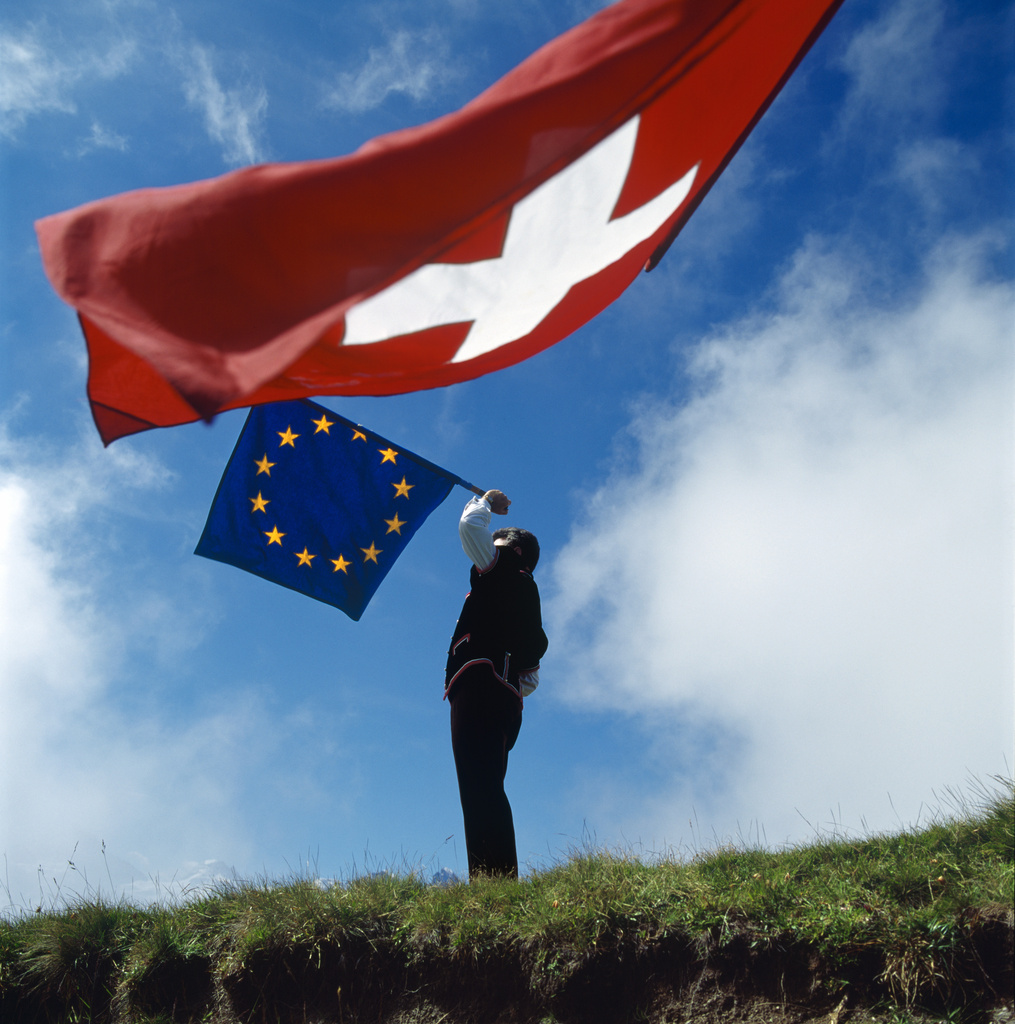
You can find an overview of ongoing debates with our journalists here. Please join us!
If you want to start a conversation about a topic raised in this article or want to report factual errors, email us at english@swissinfo.ch.